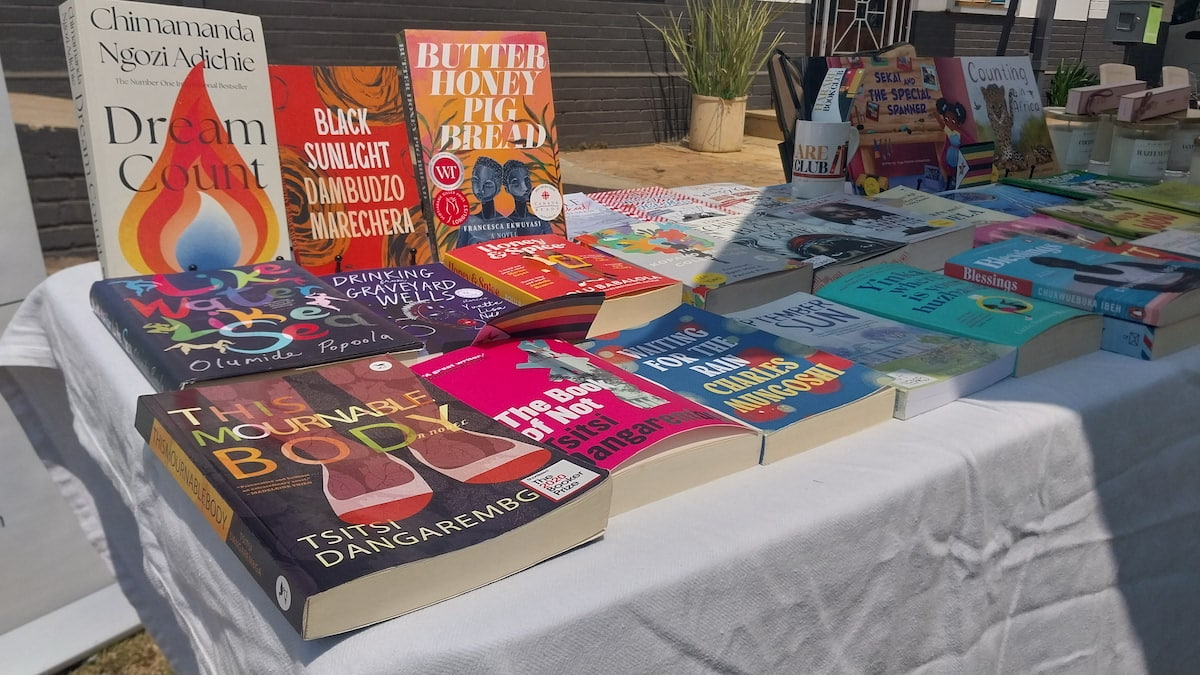

HARARE KEEPS YOU on your toes. Every moment is charged with a sense of urgency—the rush to get to work on time in the morning or to get home before it's too dark. It may, therefore, seem like a significant portion of a Hararian’s life is spent hurtling to and from work in a rickety combi whose door won’t close. This constant pressure leaves Harare Hustlers with little time to slow down and take a break. Zimbabweans, after all, are always on the grind.
But this incessant cycle — work, home, repeat — could lead to social atrophy. When the only places we interact with a community are either at work or at home, frustration and even resentment could mount. The lack of proper channels to fully express interests outside of your career or family will, over time, put a strain on your existing relationships. Trust me, your girlfriend does not want to hear about your fantasy football team, and your coworker does not care about the covo you are growing in your garden. Instead, why not explore these interests in a third place?
The concept of the “third place” was theorised by sociologist Ray Oldenburg in his book “The Great Good Place.” Oldenburg posited that to be socially fulfilled, one needed to spend time outside of the two places that dominated one's daily life: home, the first place, and work, the second place. The third place is where we carry out our interests and hobbies, a vital space for meaningful interactions outside of household duties or work obligations. In the third place, we get to do all of this not in isolation, but as part of a community, potentially forming life-long bonds.
Without a third place, we risk missing out on interactions with unfamiliar faces. The hwindi becomes our best friend. Our life falls into the monotony of work-home-work-home, and occasionally, church, if we are pious. Life in the city that never sleeps becomes one of survival. We miss out on truly living.
A core memory for those Zimbabweans who grew up in middle- or high-density areas, like me, is playing in the street with neighbourhood children until mum summons us, threatening to beat us the next time we come home after dark. The streets were our third places. There, we shared a love of tomfoolery and games with other kids, and, in the process, developed meaningful connections. I’m still friends with some of the kids I kicked dust and played maflawu with.
As you grow older, however, it becomes less socially acceptable to play in the street and to come home with shena. Thus arises the need for alternative third places. In Harare, bars and restaurants are a good option for any budget. Whether these spots fulfil the purpose of a third place is entirely up to you. You can bond with strangers over a mutual love of food, booze, or dancing, or share those moments with your friends or partner.
For a more relaxed third place that involves shopping, thrifting, and community engagement, there is always a fair or market somewhere in Harare, like the Old Stables Market or the monthly Market at Queen, a longtime favourite of many Hararians. My personal choice is the twice-weekly farmer’s market in Belgravia for their delicious paninis.
Libraries, with their rules and regulations, could at first glance seem too formal to be third places. They can feel like an extension of the second place—that is, work or school—but they have a function beyond being a place for rigorous research. In Harare, they can be a refuge from the harsh realities of life.
The Harare City Library, located in the city centre, has long served as a safe space for residents. However, due to chronic underfunding, this institution, once accessible to all, is now private, patronised by those who can afford it. Ideally, this public library would offer technological resources such as wifi and printing, the ability to borrow books and access to fun events, all at no cost.
The demise of many third places in Harare has been the result of the city's failure to provide free and publicly accessible infrastructure. The Mount Pleasant Library, while free to visit, requires patrons to pay a membership fee to borrow books. Such fees hinder people from lower socioeconomic backgrounds from accessing information and benefiting from essential community services. Third places that operate gratis are especially vital for low-income people and, in some circumstances, can serve as a sanctuary. In the realm of free public parks, the most the city has to offer is Harare Gardens or Africa Unity Square.
All hope is not lost, though. Where public infrastructure has failed, grassroots communities have emerged. Take, for example, Harare Book Club, established to make reading feel less like a chore. Tonderai Mudambo and Rumbi Zinyemba, the founders, sought to reclaim reading as a joyful, communal experience. Celebrating African Literature, spotlighting local voices, and platforming underrepresented stories, Harare Book Club has proven itself as a vital third place. As a former intern at Harare Book Club, I had the privilege of experiencing the platform’s many benefits.
Other literary spaces have popped up across the country, too, like Bulawayo Book Club and Silent Book Club Harare, where attendees get together to bond over their shared love of literature. In such locales, a thriving network of people dissect ideas, debate characters, and laugh over plot twists — far more satisfying than the alternative of screaming into the digital void.
In a city where time is swallowed by work and stress, third spaces are not luxuries but necessities. They allow Hararians to breathe, build friendships beyond obligation, and remember that life is more than work or home. Whether it’s a bar, a market, a library, a book club, or even a room full of silent readers, third places provide the missing ingredient to a fulfilled urban life: connection. Without these spaces, life in the Sunshine City would be grim.